About us
Formed in 2017 OPSHR wanted to approach supporting businesses in a very different way to a traditional HR consultancy.
Often inhouse HR teams will be great at telling you what you can’t do and presenting policies and procedures as blockers to you delivering on your KPIs, goals and financial deliverables.
Most outsourced HR consultants will mirror this mindset or simply focus your attention on wellbeing and improving your employee experience. Whilst these topics are important, they will not ensure your business is operationally optimised, and will often mean your people challenges become slow painful experiences which impact the whole business negatively.
At OPS HR our consultants have operational backgrounds and truly understand your need as a business to deliver for your clients, your shareholders or your owners. We work with our clients to ensure you act legally and positively for your employees, providing a great place to work, following guidelines and policies, but also importantly, effectively manage challenging people situations promptly without compromising on your key focus – successful operational delivery.
We can go one step further partnering with you to address HR challenges, offering bespoke support packages designed to reduce risk while optimising your business’s operational potential. Whether you need assistance with a one-off project or ongoing remote HR support, we’re here to help your business thrive.
Explore our services in more detail or contact us today for your complimentary HR Health Check.

Meet the team
Our team has over 20 years experience helping business’ grow

Michael
Managing Director
Michael is the Founder & Managing Director of OPS HR Consulting, a Chartered Member of the Institute of Personnel and Development (MCIPD) and has a BSc (Hons) in Psychology. He has extensive experience in operational and human resource leadership across a range of sectors and markets in the UK, EU and US.
A trusted voice, strategic thinker, and true business partner with leadership experience in staff engagement, culture change, reward, performance development, employee relations, equity, diversity and inclusion and wellbeing.
Experienced in helping leaders and managers of businesses elevate and improve their operational and people management, leading to overall better outcomes.
In his spare time Michael enjoys spending time with his family and friends, exploring new places, fishing, and catching up on the latest Ian Rankin Rebus novel.

Judith
Customer Success Director
Judith is a strategic customer success specialist with 18+ years of experience. She is passionate about customer relationships, love to help others and delights in delivering outstanding levels of service, whilst driving success against clients’ most critical initiatives.
Judith has worked with many C-level executives and senior management teams from FTSE100 companies across various industries, regions and cultures (EMEA and North America) to help them take their business to the next level.
Joining OPS HR in 2025 Judith is bringing her wealth of experience to help more businesses achieve the best success possible.
In her spare time Judith loves to be gardening, baking and visiting new places across the globe.
Frequently asked questions
Any other questions please feel free to contact us!

